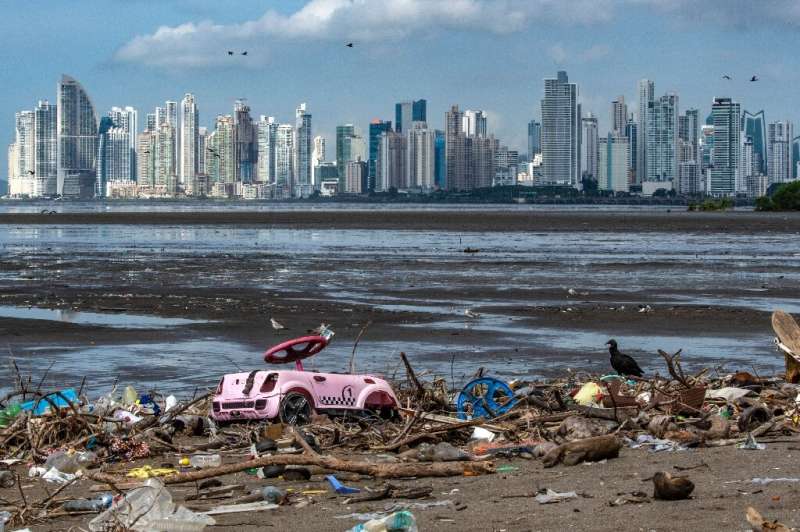
A study by a leading environmental group said Monday that most plastic plants in the United States aren't actually recycling plastic but instead converting it into a dirty fuel.
Chemical recycling is a relatively new technique that breaks plastic down to its building blocks.
It is said to be able to recapture more than traditional mechanical recycling, which involves chopping plastic up and processing it into pellets to make new products.
The Natural Resources Defense Council (NRDC), a non-profit that has helped influence key legislation since it was founded in 1970, accused the plastics industry of misleading the public through greenwashing.
There has been a lot of enthusiasm around the idea of chemical recycling as a potential part of the solution for the plastics waste crisis, according to a senior scientist at the NRDC who authored the brief.
We felt it was important to understand what these technologies are doing.
According to official federal and state documents, only eight of the hundreds of plants announced were operational or soon-to-be operational.
Five of the eight were involved in plastic-to-fuel conversion. Two were converting plastic to chemical components and one was converting carpets to nylon.
Producing fuel from plastic waste does not qualify as recycling under international definitions and it creates harmful air pollution and greenhouse gasses when burned, according to a report.
One of the plants run by Agilyx in Oregon can take waste polystyrene and convert it into styrene, which can be used to make new polystyrene.
The company says it is shipping hundreds of thousands of pounds of oil to be burned for energy rather than being converted to plastic.
Singla told Agence France-Presse that it was not clear why the company would go through the wasteful and inefficient process of converting polystyrene to styrene, only to then burn it, though one possibility was that the styrene produced was of very low quality.
Most of the hazardous waste generated by the plant was sent offsite to be burned, according to official figures.
Agilyx told Agence France-Presse that they share the view that the world has a plastic waste problem, that not enough plastic is recycled, and that many types of plastic are not being recycled.
These are the issues that Agilyx is working on.
The amount of hazardous waste produced by chemical recycling was not significant.
Six of the facilities are in communities that are disproportionately Black or brown, and five are in communities where a disproportionate percentage of households have an income below $25,000.
An estimated 242 million metric tons of plastic waste is generated every year.
The United States recycles just 8.7 percent of its plastic waste.
Singla called for a ban on single-use items, saying that we need less plastic.
There will be a new year in 2022.
Citation: 'Chemical recycling' of plastic slammed by environmental group (2022, March 8) retrieved 8 March 2022 from https://phys.org/news/2022-03-chemical-recycling-plastic-slammed-environmental.html This document is subject to copyright. Apart from any fair dealing for the purpose of private study or research, no part may be reproduced without the written permission. The content is provided for information purposes only.